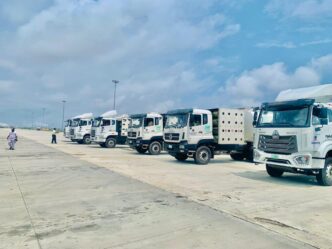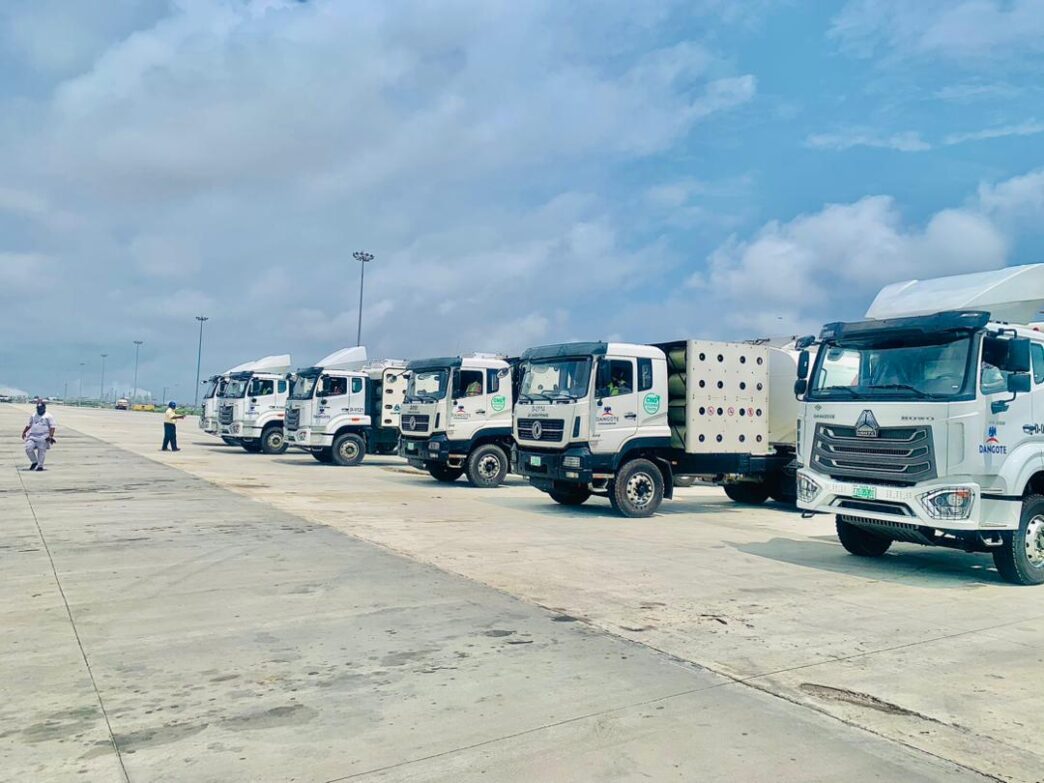Dangote Refinery’s newly acquired Compressed Natural Gas (CNG) trucks began loading petroleum products on Monday at the refinery’s gantry, marking the start of direct fuel supply to filling stations nationwide.
Gatekeepers News reports that according to reports from the launch, the trucks have commenced turn-by-turn loading as part of the facility’s distribution programme.
The refinery had earlier announced in August that it received the first batch of 4,000 CNG-powered trucks, originally scheduled to begin operations on August 15.
During a courtesy visit by AfricaRice Centre in Lagos on Sunday, Aliko Dangote explained that the decision to distribute fuel directly was a strategic move aimed at reducing dependence on third-party transporters. He described it as not only a matter of strategic choice but a national imperative.
His remarks came amid criticism from Depot and Petroleum Products Marketers Association of Nigeria (DAPPMAN), which accused the refinery of selling at lower prices to international buyers while charging higher rates locally.
The group also argued that bypassing marketers in distribution was an attempt to monopolise the downstream market.
Responding, Dangote maintained that avoiding the Single Point Mooring (SPM) system for product evacuation was necessary to prevent additional costs of N75 per litre in handling charges, amounting to an estimated N1.5 trillion annually.
A statement by the refinery reads, “If the Dangote Refinery were to load 40 million litres of PMS and 15 million litres of AGO (diesel) via the Single Point Mooring at an extra cost of N75 per litre in handling charges, it would amount to approximately N1.5 trillion annually in avoidable charges.”
“By contrast, utilising gantry loading and direct trucking would eliminate these costs entirely, resulting in substantial savings that could be redirected towards critical infrastructure investments.”
“Losing N75 per litre to intermediaries who cannot guarantee that the products will be delivered to the Nigerian consumer is not a viable option.”
“Rather than enabling such exploitation, we are committed to partnering with credible distributors and expanding humanitarian outreach, ensuring that petroleum products get to the Nigerian people transparently and affordably.”











